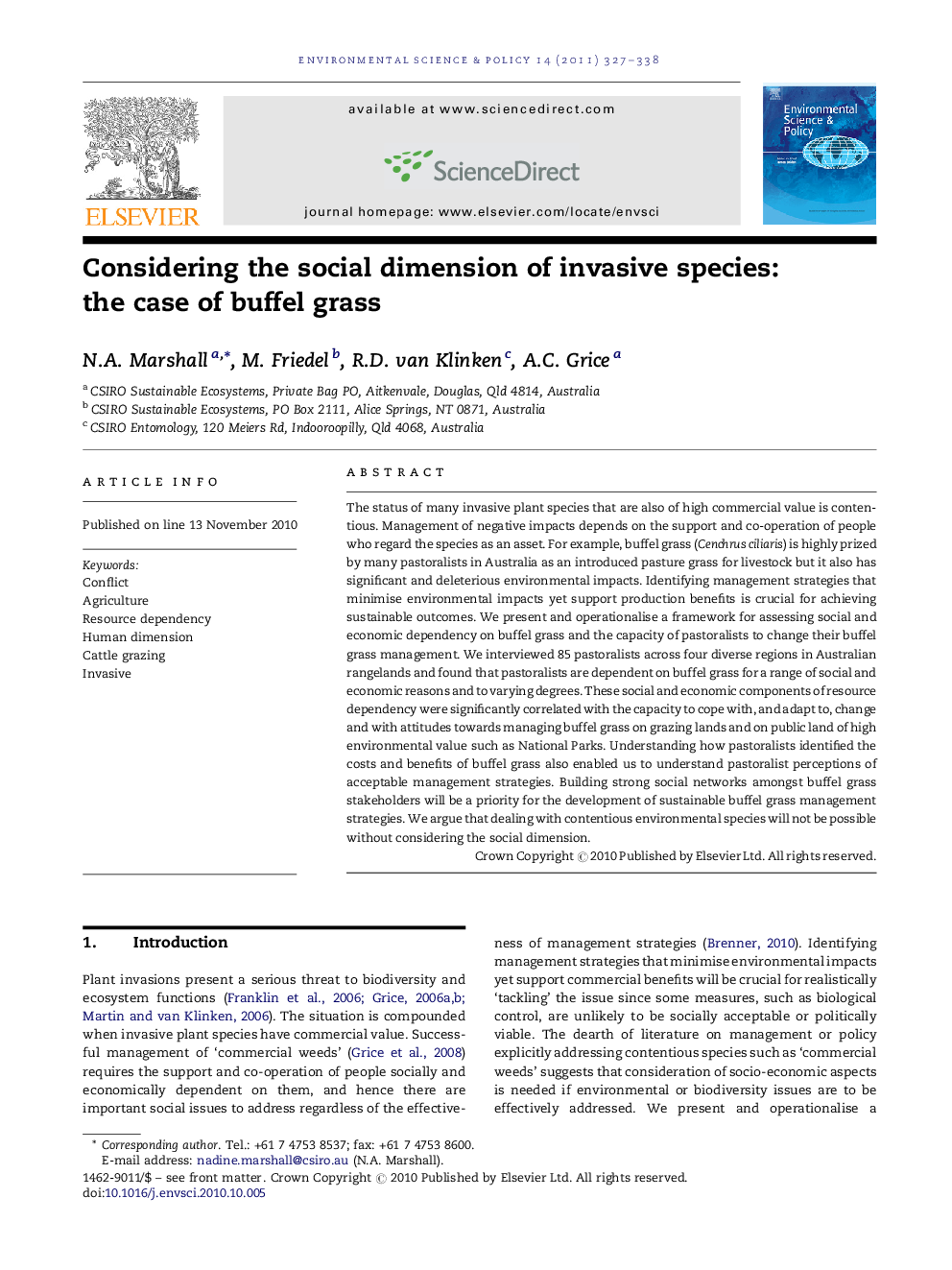| کد مقاله | کد نشریه | سال انتشار | مقاله انگلیسی | نسخه تمام متن |
|---|---|---|---|---|
| 1053880 | 946731 | 2011 | 12 صفحه PDF | دانلود رایگان |

The status of many invasive plant species that are also of high commercial value is contentious. Management of negative impacts depends on the support and co-operation of people who regard the species as an asset. For example, buffel grass (Cenchrus ciliaris) is highly prized by many pastoralists in Australia as an introduced pasture grass for livestock but it also has significant and deleterious environmental impacts. Identifying management strategies that minimise environmental impacts yet support production benefits is crucial for achieving sustainable outcomes. We present and operationalise a framework for assessing social and economic dependency on buffel grass and the capacity of pastoralists to change their buffel grass management. We interviewed 85 pastoralists across four diverse regions in Australian rangelands and found that pastoralists are dependent on buffel grass for a range of social and economic reasons and to varying degrees. These social and economic components of resource dependency were significantly correlated with the capacity to cope with, and adapt to, change and with attitudes towards managing buffel grass on grazing lands and on public land of high environmental value such as National Parks. Understanding how pastoralists identified the costs and benefits of buffel grass also enabled us to understand pastoralist perceptions of acceptable management strategies. Building strong social networks amongst buffel grass stakeholders will be a priority for the development of sustainable buffel grass management strategies. We argue that dealing with contentious environmental species will not be possible without considering the social dimension.
Research highlights▶ Contentious species have a high agricultural benefit but deleterious environmental effects. ▶ Assessing the dependency of agricultural people on contentious species, and their capacity to cope without them are important in developing workable strategies. ▶ This paper suggests five important dimensions to consider when assessing resource dependency and four dimensions for adaptive capacity.
Journal: Environmental Science & Policy - Volume 14, Issue 3, May 2011, Pages 327–338